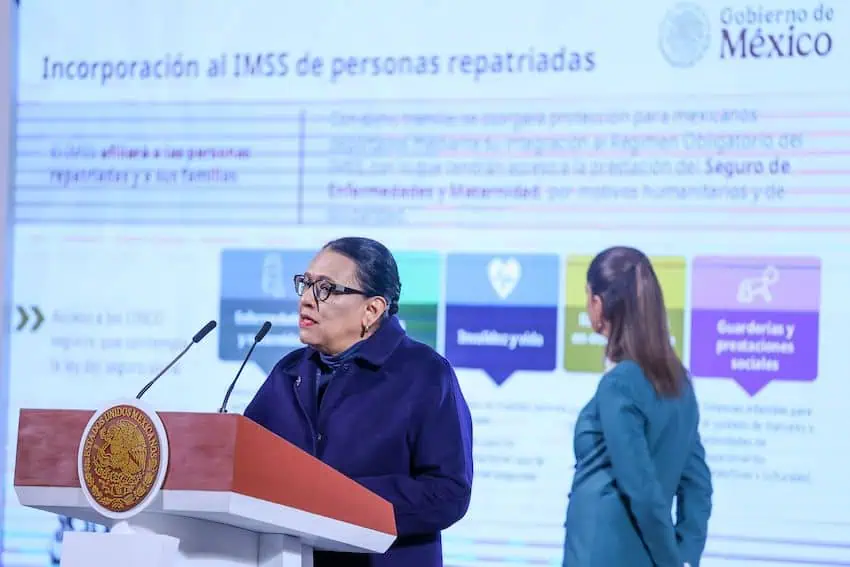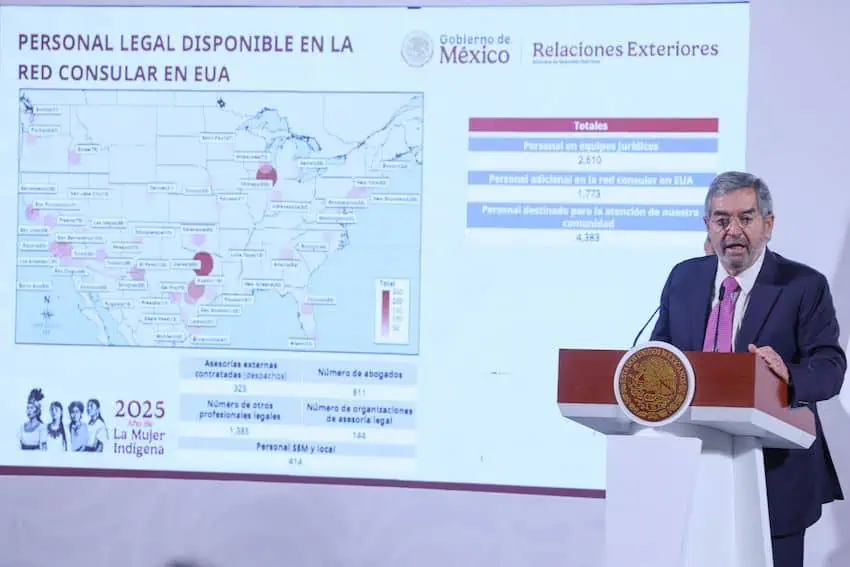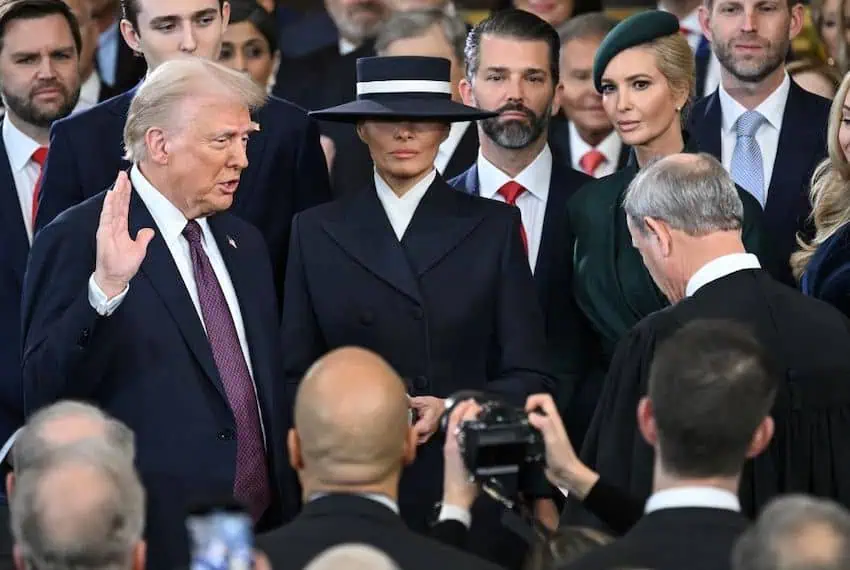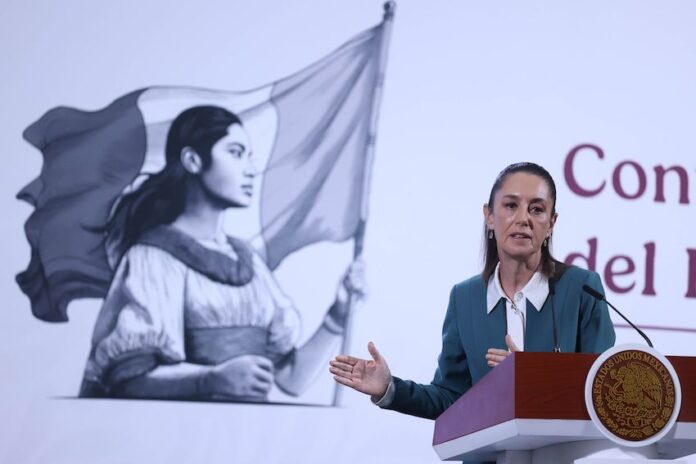Just hours ahead of the inauguration of Donald Trump as the 47th president of the United States, the Mexican government revealed details of its plan to receive Mexican immigrants deported from the U.S. by the Trump administration.
President Claudia Sheinbaum told her Monday morning press conference that the government has prepared a “comprehensive program” for Mexicans deported during what Trump has pledged will be “the largest deportation operation in American history.”

She said that deportees will receive immediate financial support from the government to cover the initial costs they face after returning to Mexico. That support will come in the form of a “compatriot welfare card,” a kind of bank card loaded with 2,000 pesos (about US $100).
Interior Minister Rosa Icela Rodríguez said that deportees will also have access to public health care services in Mexico.
“We don’t agree [with Trump’s deportation plan], but in case it happens, [deportees] will be received with access to the Mexican government welfare programs, access to health services for them and their family, transport to their places of origin and telephone communication,” she said.
“Mexico will do everything it can to defend and attend to [our] compatriots. It will allocate what is needed to receive those who are repatriated in order to achieve their reincorporation to their native country,” Rodríguez said.
The federal government is also prepared to provide consular support and legal advice to Mexicans at risk of deportation from the United States. It has sought to strengthen Mexico’s consular network in the United States in recent months.

“You are not alone and you won’t be alone,” Foreign Affairs Minister Juan Ramón de la Fuente assured Mexicans in the United States.
Rodríguez said that the “México te abraza” initiative is “a plan that was instructed by President Claudia Sheinbaum Pardo and in which the entire government participates.”
It includes “protocols to receive returnees at the border ports of entry and at airports,” she said.
The interior minister explained that authorities will assist deportees in obtaining the Mexican identification documents they need to access social security services in Mexico. Returning Mexicans will have opportunities to work in government employment programs such as the Youths Building the Future apprenticeship scheme and the Sowing Life reforestation initiative, Rodríguez said.
Sheinbaum reiterated last week that Mexico was ready to receive large numbers of Mexicans if the Trump administration follows through on its mass deportation plan. However, until Monday, the government had not specified how it would help deportees.
The president and other government officials have argued that the deportation of large numbers of Mexicans from the United States will have a significant and negative impact on the U.S. economy given that they work in a range of important sectors. There are estimated to be around 5 million undocumented Mexicans living in the United States.
Sheinbaum confident that Mexico will reach ‘agreement’ with Trump administration on various issues
Sheinbaum told reporters that her government has had some “informal” discussions with incoming Trump administration officials, but stressed that formal communication will commence after Monday’s inauguration of the 47th president of the United States.

Once Trump has taken office, “we’ll enter into communication [with the new U.S. government] and we know there will be agreement on different issues — that’s our objective,” she said.
One major concern for Mexico is Trump’s pledge to impose a 25% tariff on all Mexican exports to the United States. Trump said in late November that he would impose the tariff on day one of his second term as president.
But Reuters, citing an incoming Trump administration official, reported that Trump would “issue a broad trade memo on Monday that stops short of imposing new tariffs on his first day in office but directs federal agencies to evaluate U.S. trade relationships with China, Canada and Mexico.”
Sheinbaum said last week that her government would combat the tariff threat through dialogue with the new U.S. government.
At her morning press conference on Monday, Sheinbaum also expressed her support for CBP One, the United States government app that migrants use to arrange appointments with U.S. immigration authorities.
“We don’t just suggest the continuation of this application, but the possibility of similar schemes [being available] from Central America, the south of Mexico or [prospective migrants’] countries of origin,” Sheinbaum said.
As of 1 p.m. Mexico City time, the CBP One app had already been discontinued by the Trump administration.
With reports from El Economista and Sin Embargo
